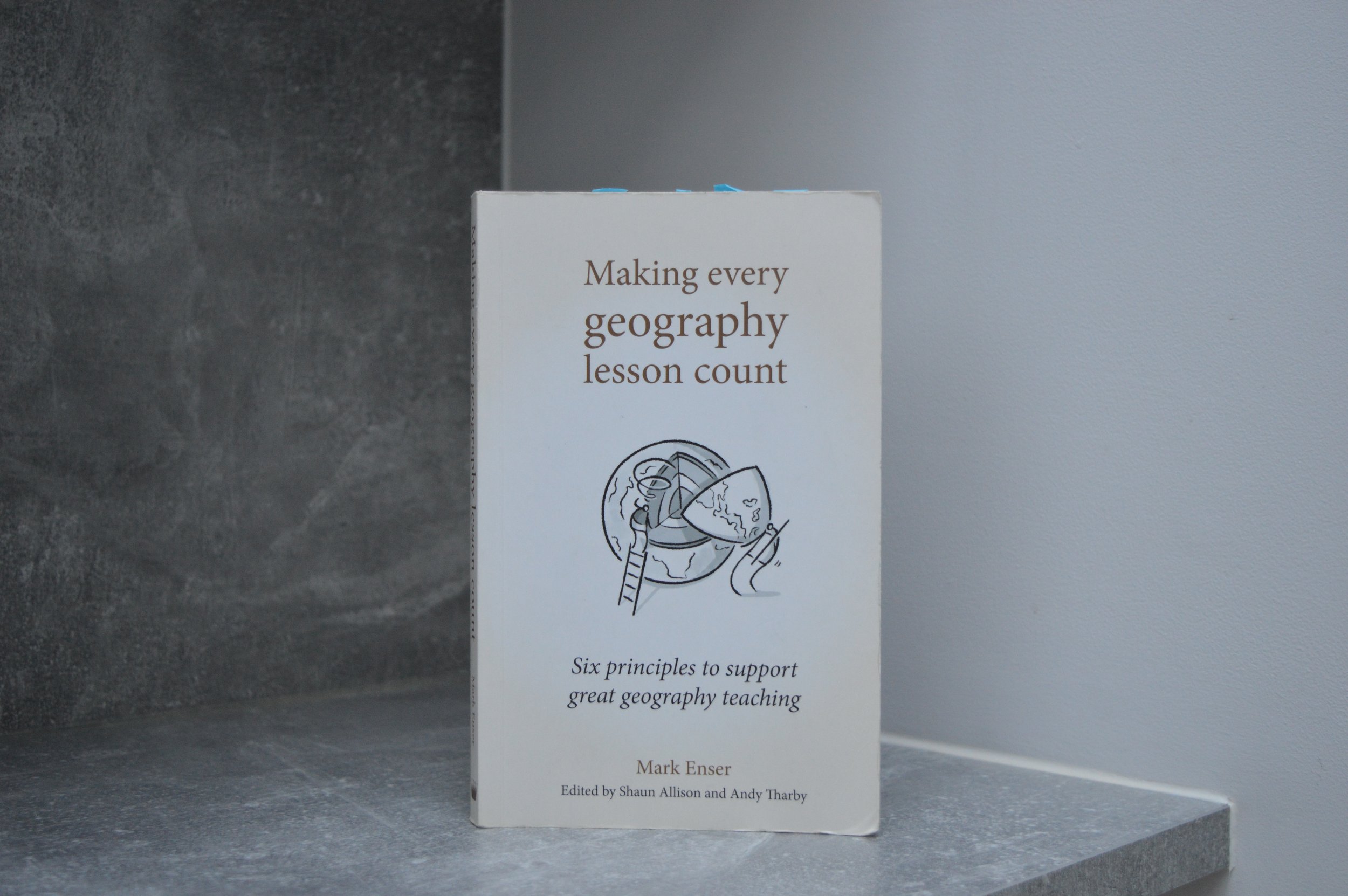Making Every Geography Lesson Count
“Our job as geography specialists is to provide the link between the canon of knowledge about our subject and our students.” (p.31)
March 2022
Overall Verdict: ★ ★ ★ ★ ★
To buy this book, click here.
Why this book?
Having read this book when it was first published in 2019, I re-read it two years later to revisit some of the key ideas ahead of deciding our departmental focus for this academic year. This is a book that is (unsurprisingly) ageing well. Cognitive load theory, retrieval practice and the need for subject-specific pedagogy are all key features of the book; themes that remain as common in the education world of 2022 as that of 2019. As the title suggests, Mark expertly discusses effective teaching and learning through a uniquely geographical lens which makes this a must-read book for both new and experienced geography teachers alike.
What I particularly love about this book is its all-encompassing nature- there is not an element of teaching geography that is not discussed. Using the 6 principles from the original Making Every Lesson Count book, Mark discusses the underpinning theory before offering practical strategies to bring these principles into the geography classroom. This book will help you reflect on, discuss, and answer the following questions:
Challenge:
What do we mean by progress in geography?
How can we be sure that our lessons stretch all students?
How can we ensure that topics or geographical ideas revisited in different key stages are sufficiently challenging enough to develop students understanding?
Explanation:
How can we ensure that we’re explaining geographical ideas as clearly as possible?
What misconceptions do we need to look out for and challenge in our teaching of geography?
How can we use analogies and stories when explaining geographical ideas to make them memorable?
Modelling:
How can we model our thinking and writing to students to produce independent learners?
How can we model in such a way that helps students understand why their work should look like this example?
How can we use modelling to help train our students to ‘think like a geographer’?
Practice:
How can we ensure that the curriculum’s content is actually learnt? How can we ensure that practice leads to secure learning?
What does an enquiry approach look like for geography practice?
What is the difference between practice and performance and why does it matter for teaching?
Feedback:
How can we give effective feedback that benefits the learner without dominating a teacher’s time?
How can we ensure that feedback aims to improve the student, rather than changing or improving the work?
How can we give effective feedback in the lesson?
Questioning:
How can we create a questioning culture in our geography classrooms?
How can we use high-quality subject-specific questions with our geographers?
How can we plan our questioning to ensure it is as successful as possible?
Three key takeaways:
1. In geography, there are several topics that students study at a range of key stages (e.g. coasts, the workings of ecosystems, rivers). In order to ensure sufficient challenge that allows students to progress their geographical understanding, we have to firstly know our subject well, secondly agree on what challenging works looks like and finally, look across the 7-year journey of a student to get a clear sense of where they’re going.
2. A well-planned curriculum is at the heart of all that we do, including explanation.
It is easy to assume that we’re skilled in sound geographical explanations because, well, we’ve done it before, but this is often not the case. When thinking about how to explain a concept or phenomena, it is essential to carefully think about what students already do (and do not) know.
3. Questioning is arguably even more important in a geography classroom because it is a questioning discipline.
To buy this book, click here.
